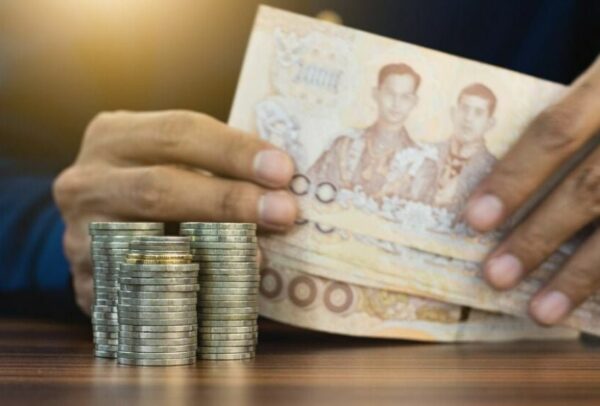Even though Prime Minister Srettha Thavisin has promised to end generational poverty, his policies are mostly focused on short-term economic advantages, according to various analysts.
Examining the policies of the ruling Pheu Thai Party reveals that they are only focused on boosting the economy. “Economic stimulus does not equal ending poverty,” said Nitirat Sapsomboon, coordinator of the WeFair network.
WeFair promotes policies that reduce economic and social disparities and provide opportunities for people to participate in the safety net.
Nitirat claims that capitalism and private enterprise preoccupy the Pheu Thai intellect. He also said that the current administration seemed to believe that by expanding the economy and making “a bigger cake,” everyone will gain.
But if Pheu Thai stays on its current course, it will fail to reduce inequality. Increasing people’s wages is not the answer to [structural] inequities, and the government needs to realize this.
If the government has a plan, what is it?
Under Srettha’s leadership has prioritized initiatives to alleviate farmers’ and companies’ debt, reduce citizens’ energy bills, increase tourism revenue, and improve citizens’ standard of living. To promote soft power and stimulate local economies, the government plans to provide every adult citizen with 10,000 baht through a digital wallet program. The government is counting on these and other measures to boost GDP growth from its current 2.6% to 5%.
According to Nitirat, the minimum wage would be raised and monthly subsidies would be provided to the elderly, the disabled, and children if the ruling party and its coalition partners followed through on their promises.
He did point out that the administration’s policy statement from early September did not go into great detail on these issues.
So, I’m not sure if the election campaign promises still stand.
Lacking in fairness
Thailand has struggled with inequality for quite some time, with data showing a wide wealth difference between the country’s richest and poorest citizens. While the country’s largest landlord owns nearly 1,000 square kilometers (631,263 rai), many farmers have nowhere to farm.
Over half of Thai adults (53.60%) have less than US$10,000 in wealth, according to Credit Suisse’s annual Global Wealth Report. The assets of another 43.8% lie in the $10,000–$100,000 range. Only 2.5% of the population has assets between $100,000 and $1,000,000, nevertheless. In Thailand, only 0.2% of the population has a net worth of over $1 million.
In 2018, the Swiss financial behemoth found that Thailand was the most unequal country in the world.
In comparison, only 13.1% of Taiwan’s population has less than $10,000, while over half (49.2%) had between $100,000 and $1,000,000. Three-and-a-third percent (33%) of people’s net worth is between $10,000 and $100,000. Only about 4.4 percent of Americans are worth more than $1 million.
The wealth of Thailand’s 40 wealthiest persons “grew by 5.7 times to $143 billion from 2009 to 2022,” Nitirat said. Also, “about 2.9 million Thai children lived in families where each member had an average of 2,577 baht to live on per month.”
There are around 4.4 million Thais that cannot afford even the minimum monthly wage of 2,803 baht. More than 4.84 million Thais live in abject poverty, earning less than 3,000 baht per month.
Furthermore, “the percentage of families in severe poverty is highest in the South,” as Nitirat put it.
The results of the most recent nationwide research by the National Statistical Office and UNICEF corroborate his figures. The report, which came out on September 27th, demonstrates that kids in southern Thai regions still have it rough compared to the rest of the country in terms of things like diet, immunization, school attendance, and academic prowess.
Vaccination is an area of particular concern in the American South. According to the study, 83 percent of American infants aged one year old have received all recommended vaccinations, protecting them from deadly diseases including measles, polio, and tuberculosis. However, vaccination rates are significantly lower in the south, with 44% in Yala, 29% in Narathiwat, and 27% in Pattani.
Malnutrition is especially prevalent in the South, affecting a disproportionate number of children and posing a long-term threat to their health and development. Children under the age of five in Ranong province had a stunting incidence of 26%, the poll found; this is more than twice the national average of 13%. Rates of 20% are also worrisomely high in the provinces of Yala, Pattani, and Narathiwat.
Suggestions for Policymakers
According to Nitirat, WeFair is working to advance nine policies that will improve the lives of all Thais. These items are:
Free kindergarten through secondary school for 9.2 million Thais; a monthly stipend of 3,000 baht for each of Thailand’s 17.1 million children under the age of 18
All Thais should have access to the same high-quality healthcare.
Making sure that 25 million families can afford decent dwellings
- Including all of Thailand’s 39 million residents in the social security system
- A pension payment of at least 3,000 baht per month, rising with inflation to account for cost of living increases
Social support for everyone, including the 17 million women and individuals with disabilities in the United States
More equitable wealth distribution can only be achieved through tax reform.
In his opinion, “Such welfare moves will strengthen society,” Nitirat remarked.
No chance of a more equitable and prosperous society?
State welfare expert and Thammasat University lecturer Sustarum Thammaboosadee said the new Pheu Thai government was made up of old power cliques who wouldn’t put much effort into improving people’s lives. When the Thai Rak Thai Party was in power, it advocated for larger subsidies for the elderly and implemented the groundbreaking 30-baht medical system, both of which were precursors to the much lauded universal healthcare coverage.
According to recent interviews with key figures, Pheu Thai appears to believe that implementing its welfare policies will be too expensive and time-consuming.
During the policy statement session, Pheu Thai heavyweight and Deputy Finance Minister Julapun Amornvivat said lawmakers it was time to snap out of the “welfare dream” and face reality.
There are significant differences between welfare states like Sweden, Finland, and Norway and Thailand in terms of structure, GDP ratio, and income, as Julapun pointed out. We just cannot afford to offer handouts for everyone.
General Desk of Thai PBS International




